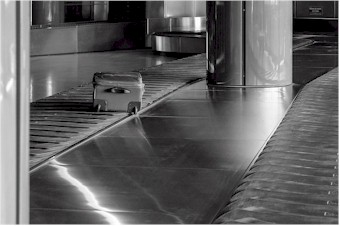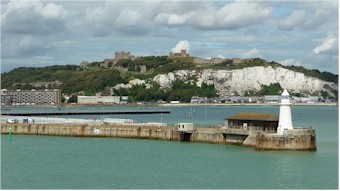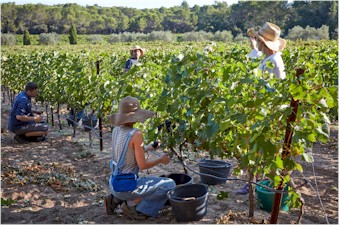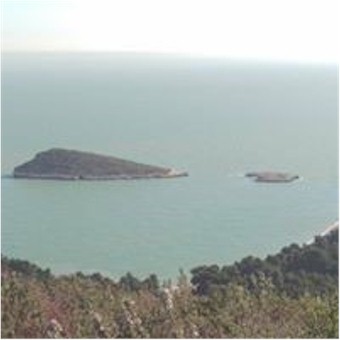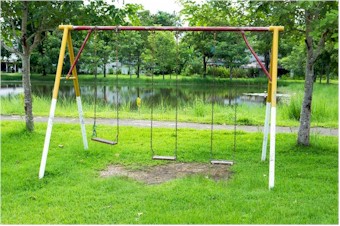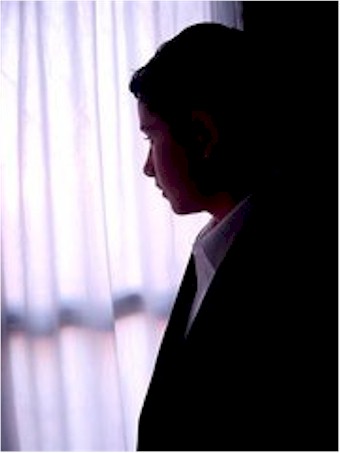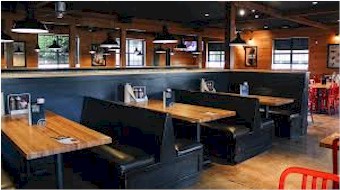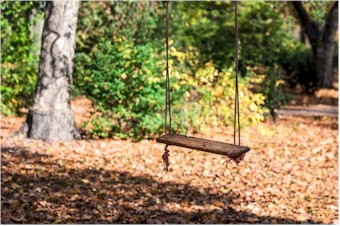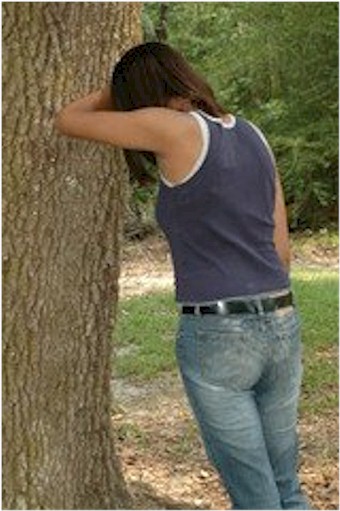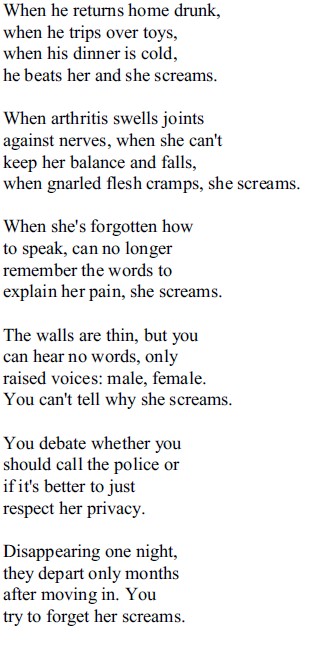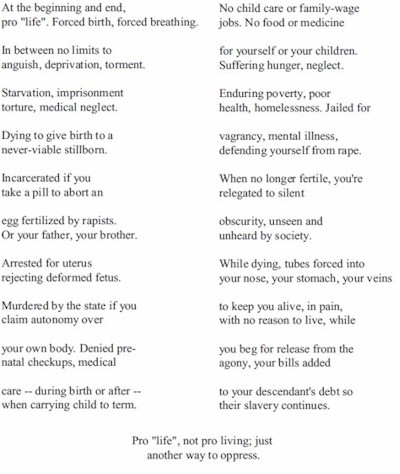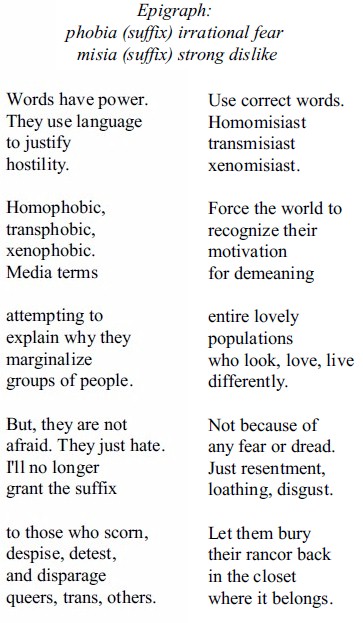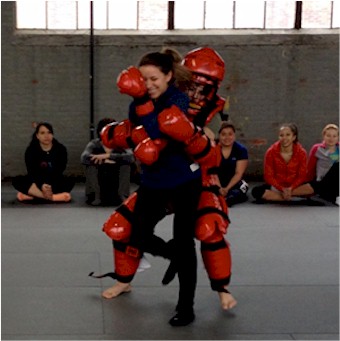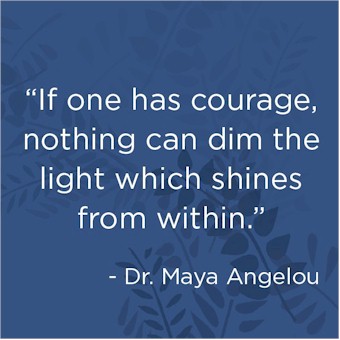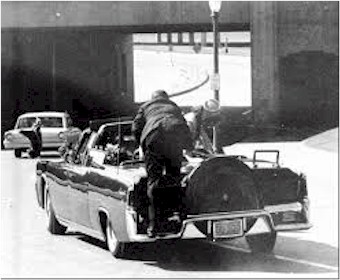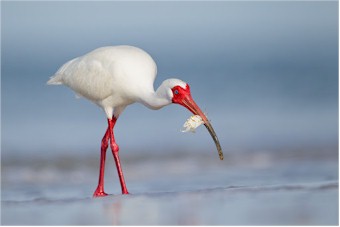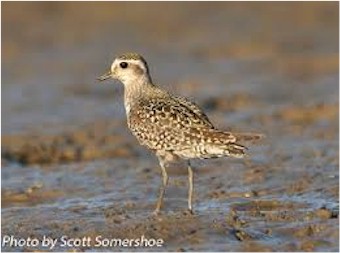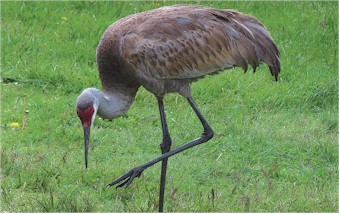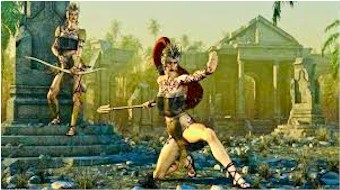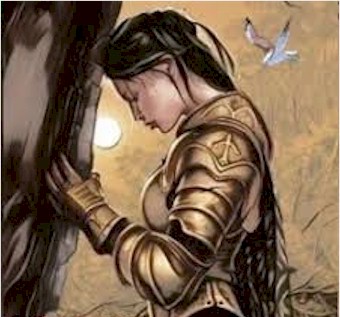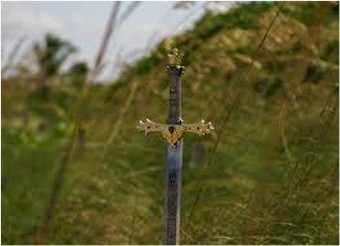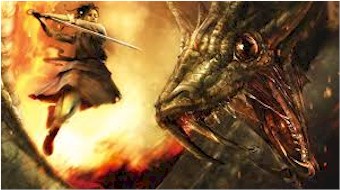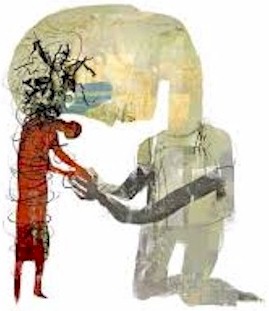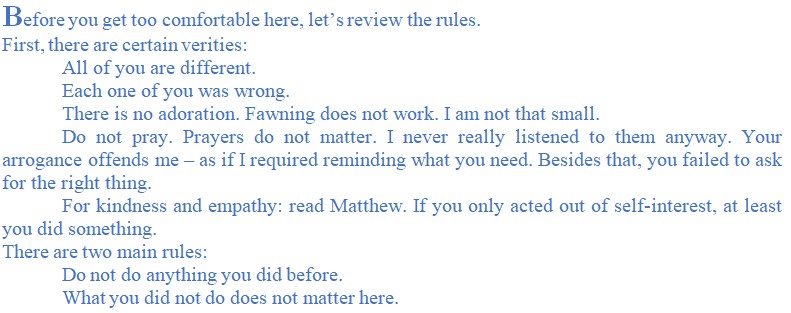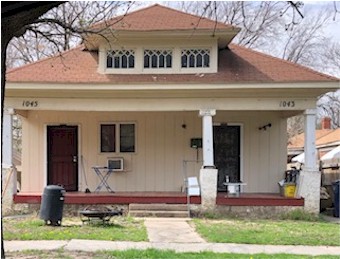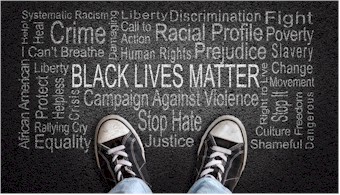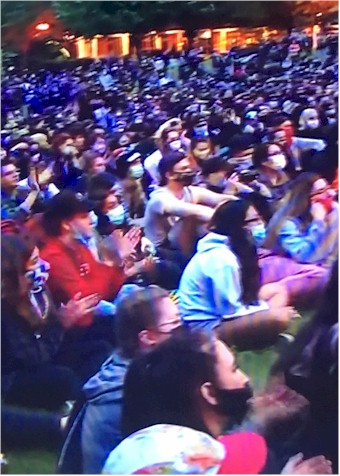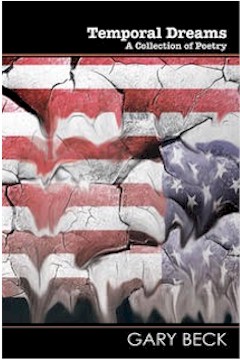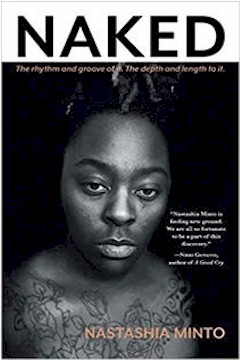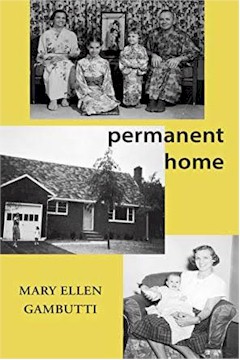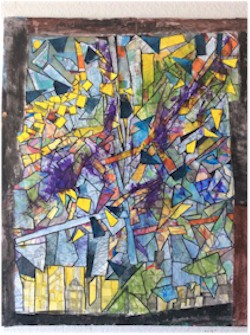Portland Metrozine |
| A Journey Guided by Angels |
By Margo Adler |
| Bar Cat |
By Wesley Anne Cook |
| Looking Back |
By Wesley Anne Cook |
| Someplace Without Washrooms |
By Alfredo Salvatore Arcilesi |
| Activist Suite |
By F.I. Goldhaber |
| The Chess Match |
By Gary Beck |
| Gallery Walk |
By Mary Ellen Gambutti |
| Rite of Passage |
By Maggie Jones |
| Family Resemblance |
By P. A. O'Neil |
| Variations on a Theme |
By Tom Bierovic |
| The Dragon’s Head |
By Mark Kodama |
| Rules in Heaven |
By Thomas Elson |
| On Her Third Step |
By Thomas Elson |
| Slice of Life |
By Prisoner # 53.3.8.5.7 |
| Spotlight On: Systemic Racism |
By Basha Krasnoff |
| Point of View |
By Toni Merflag |
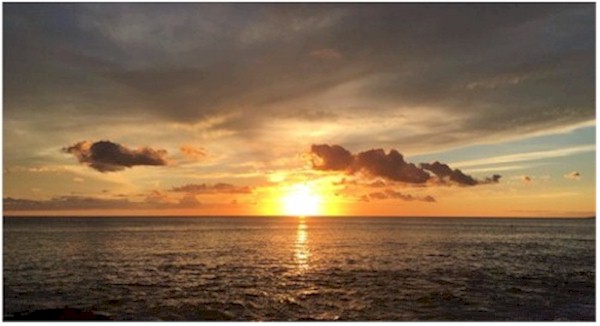
|
|
||
| Creative Nonfiction | ||
A Journey Guided by Angels By Margo Adler Prologue: During times of trouble, Jews revert to the tradition of telling stories that give hope, pleasure, and consolation to a troubled mind. Over the generations, storytelling has assumed many forms with but one caveat: the story cannot be sad or depressing. In keeping with that tradition during these troubled times, here is an excerpt from the story of a two-year journey guided by angels. The Journey Begins Finally, after three full months of planning, we arrived unprepared in London. Waiting in baggage claim long enough to develop misgivings, our boxed bicycle parts finally appeared. For the next two hours we struggled to reassemble them in the Heathrow parking lot. I wondered why taking something apart is so much easier than putting it together. Tired and discouraged, I looked up to relieve my aching neck and watched an elderly couple, who, having just assembled their bicycles and panniers, were getting on their bikes and setting off. They looked back at us, waved, and gave us thumbs up. They seemed confident and eager, like a picture from a Kiplinger cover; we on the other hand, looked bedraggled and weary. They knew where they were going and what they were doing. We looked bewildered and wondered what we had gotten ourselves into. Never mind, I told myself, at least we have a place to stay tonight.
Bicycling from Heathrow airport through miles of traffic and fumes, we eventually arrived at the beautiful London neighborhood of South Kensington. Stately white townhomes with black iron fences and balconies, manicured gardens with blooming flowers, enough reds to let us know we were someplace important. We looked about and acknowledged our luck of a restful stay in such a lovely neighborhood after an arduous overseas journey and bike ride from the airport. Finding the townhouse, we knocked on the black carved door, without answer. We were disappointed, though not concerned, that our prearranged hosts were not home. We left a note announcing our arrival and went for a cup of tea. By the end of the journey we came to realize that “not answering” was a way of communicating to visitors that they were not welcome – apparently this was considered “more polite than a face-to-face” so as not to “embarrass anyone.” Upon returning, we found the note gone, but still no answer from our hosts. We had no reason to assume we were not welcome, so we walked about the square and kept an eye on the house. Seeing our presumed host strolling toward the apartment, we enthusiastically greeted him. “Well" he said, "my wife and I had a change of mind and you can't stay, so then, off you go." “Where will we go?” we asked. “Oh, I’m sure you will find something,” he said as he went inside his townhouse and closed the door. Unprepared and baffled, we had yet to learn that “unprepared” happens often but “baffled” is merely a state of mind. Verging on panic, we asked ourselves, “What would we do if we were backpacking in the wilderness?” Of course, we would find food and shelter. Once we decided not to panic but to seek out other options, some of the most unexpected and wonderful experiences presented themselves. In those days before cell phones, finding a place meant searching the streets and as darkness approached, we settled on the closest available B&B we could find. The cost per night amounted to what we had budgeted for a week of lodging! Our London tour plans were thrown in the bin and the next morning after breakfast of soft-boiled egg, toast and jam and a cup of tea, we bade farewell and fled London and our plans to sightsee the city. With no London city maps to be found anywhere owing to the massive influx of tourists for the Queen’s Jubilee, we took the first road we came to that headed south out of London, and off we pedaled with the anticipation of encountering a lush English countryside scattered with sheep. Instead, we bicycled through traffic, fumes, run down neighborhoods, and suburbs. Strangely, though, all along the way bus drivers and taxi drivers waved at us, vehicles stopped to let us turn or pass, and people watched us with curiosity. The good nature and encouragement of these unknown people cheered us on, and I pondered what they knew or might have recognized in us that engendered such a greeting. The Lushness of Surrey
After fifty miles and many hours we arrived at Godstone in Surrey. The Surrey countryside was lush and had a New England familiarity to it. We stopped at pubs along the way to ask for lodging, but none took boarders, at least not boarders who looked like us. Finally, stumbling with fatigue, we entered the Bell Pub and the room hushed as the men turned to look at us. We were clearly out of place. Just as we were about to back out of the door, the bartender asked if we wanted something. With the tension broken, the locals relaxed, and the men eased back into their pub conversations. It was then that I noticed the sign: “No Women Allowed.” We had entered the “Men Only” side of the pub. Eager for us leave, one man suggested that we ask Lady Burnette of Stratton Mansion for a place to camp and pointed the way. We biked the short distance to Stratton Mansion, stopping to eat blackberries from the hedgerow and listen to the birds coming in for their evening feast. Arriving at the manor, we walked our bikes cautiously through the gate. The sound and feel of reddish gravel under our feet and tires was comforting. A great Golden dog bounded up to us with a ball in his mouth. His joy and exuberance enveloped me, and I laughed when he dropped the ball at my feet and looked from me, past the “Beware of Dog” signs, to Lady Burnette. With this greeting, the dog had given his approval and that was all the Lady needed to know. She greeted us with, “Why don’t you go across the lane and meet Mr. Almond my groundskeeper?” Across the lane was Stratton Cottage, surrounded by a white picket fence and a front garden abundant with color – flowers and butterflies and the soft murmuring of bees. The intense watchful eyes of a sheep dog drew our attention. At a word from his master, he came to inspect us. We stood still and waited, he sniffed, looked at us and wagged his tail. After giving us his approval, he looked back to his master and with the words, “that will do dog,” returned to his master’s side. Given his dog’s approval, Mr. Almond smiled at us and pointed to a Great Oak in the meadow by the house. He said, “There’s just the right spot for a tent in the meadow by the tree.” Walking our bicycles over by the meadow fence, we breathed in the beauty of the land and felt gratitude that today was different from yesterday. With some joy, we set to unwrapping our tent and sleeping bags. We worked silently, peacefully, as Mrs. Almond and her young daughter Coleen, watched from a distance and then slowly approached. Coleen was very shy, and very curious. She peeked at us and alternately cast her eyes down. Mrs. Almond, in contrast, was bubbly and energetic and eager to talk to us. We were properly introduced to the dog and cat and asked questions about our trip. In what we were to encounter many times in England, she expressed awe at our freedom and a wistfulness and longing for adventure. In 1976, we were an oddity; it was only later that Americans on bicycles became commonplace. Mrs. Almond asked if we might be ready for a “cuppa” and soon returned with a white tablecloth, a silver tea service, a tray of cakes, a teapot, a creamer for the milk, and a bowl of sugar. At that moment, life felt gracious and reassuring. I was aware that this elegance was saved for honored guests and I felt humbled by her hospitality. Drawing on my New England training in the manners fitting a British tea service, I expressed proper appreciation. As we sat in that verdant meadow awash in flowers, enjoying a proper English Tea, a symphony unfolded. I closed my eyes; the spring warmth of the sun filtered through the trees and carried with it the songs of birds trilling at the coming evening. And from the earth arose Vaughan Williams Fantasia on a theme of Thomas Tallis. The oboe, the cello, the French horn swelling from the meadow. Fatigue fell away replaced by a sense of joy and serenity. Expressing pleasure at our gratitude, Mrs. Almond invited us to come for supper, after we had a rest. I understood that our presence and our stories not only gave something new to her life, they also would make her special in the eyes of the community as other women sought to hear her stories about us. After she returned to the cottage, I thought about how smoothly our arrival had been handled and knew they were expecting us – someone had probably called from the pub and alerted them that we were on our way. And so, it was from the moment we crossed the gravel threshold to the Manor, my understanding of life was transformed — our frustrating and exhausting trip morphed into one of beauty and hope. All because of the greeting and approval of two gatekeeper dogs who communicated “yes, welcome them” to their masters. Onward to Calais
A month later, we arrived in Dover and boarded the ferry to cross the English Channel to Calais. Our plan had been to stay in Paris for a month and study at the Alliance Français, but we could not find affordable lodging and the Alliance Francais was completely full. It seemed that just as our arrival in London coincided with the Queen’s Jubilee, our arrival in Paris coincided with a mass immigration from Morocco and Tunisia. As the city pulsed with the arrival of thousands of immigrants, our presence was just an added burden on the city. So, we sat on the cement steps in front of the Alliance without a plan but with the sort of confidence that is gained from encounters with angels (our “Melachim”). We sat, we waited, and if someone asked, "What are you waiting for?" we shrugged and tuned our palms upward all the while sensing that something wonderful might happen. Then he appeared and said, "J'attendais votre arrivée" (I have been awaiting your arrival). Apparently, my sense of wonder was right - the grape harvest was early, and this vintner was desperate for workers. He handed us two train tickets to his vineyard and employed us for three weeks along with 50 other young adults from all over the world to learn the art of harvesting grapes and making wine.
From central France we bicycled through Provence, Aix, Avignon, Cannes, and the French Riviera on our way to Northern Italy. Originally our plan was to cycle over the mountains into Northern Italy, through Tuscany and on to Eastern Italy, then south to Bari. Instead of following our plan to take a direct route to Bari, we took an unplanned detour to the mountainous peninsula of Gargano. This unplanned detour quickly turned into what could have been “a flying death off the edge of the mountain into the Adriatic Sea” type of adventure. For, while trying to slow my descent down the steep mountain trail, my brakes started to smoke and then one brake snapped. I grasped released the remaining brake in a vain hope of slowing the advancing speed of my loaded bike. Moving too quickly to make a plan or even think about jumping off the bike, I felt like I had become a spectator in my own demise. I found myself racing straight ahead out of control into open space. To my right was a cliff and steep drop down into the sea. Then suddenly, to the left a sandy hill appeared - a turn to the left, a turn I barely saw, and barely made, saved my life.
Like the sand run offs on mountain roads in the Western U.S., an emergency stopping option for runaway trucks, I turned into the sand and fell off the bike as it stopped. My friend had preceded me and was safely sprawled in the sand. My only thoughts were relief and deep gratitude that I was alive. Collapsing into the sand, exhausted, I fell into a deep sleep. Maybe I had gone into shock because I awoke abruptly to the presence of a man standing watch over us. He spoke to us in German, “ für die Saison geschlossen.” I just stared at him thinking I was hallucinating. But he repeated, “für die Saison geschlossen (closed).” Looking about I saw a tourist camp, completely vacant of anything but goats. With this man standing over us, I pointed to my snapped brakes and said in Yiddish “geh' schlafen”( go to sleep). This was close enough. He understood and took us to a hut, unlocked the door and left. We did not see him again. Close Encounters While we had had some close encounters on this trip, none was as harrowing as careening down the mountain trail of Gargano Peninsula. And now, here we were in this tourist camp with the mountain goats and I felt nothing but relief and gratitude that I was alive. “Malachim” appear in all shapes and forms and here was this one solitary man, in an empty camp, speaking German, and offering us refuge. When we continued on our travels, we were drawn to a road sign pointing toward the Maritime Alps and made another unplanned detour. We climbed the mountain to the medieval village of Gorbio close to the Italian border. The morning mists and cool breezes from the coast dissipated and the sun bore down making the air hot and dry. It was noon when we arrived and the village was empty – desolate: all shutters were closed, there was no sound, not even a dog or the wind. All we saw were medieval walls, a square, a fountain, and emptiness. It seemed the village had been vacated long ago. We drank from the fountain and sought shade from the oppressive heat and glare of the sun. We found a beautiful garden and views filled with yearning overlooking the Bay. We also found a sign with the history of the area:
Napping, we waited for a cool breeze to restart our travels. The sound of doors and shudders opening, of voices, of a village coming back to life awakened us. We had arrived during La Sieste, the afternoon nap. We reentered the now lively village and sat at a “Café en Plein Air” enjoying the transformation of the village. Our waiter asked where we were headed and at our response of “the lakes” of Northern Italy, he looked at us incredulously and shook his head and clicked his tongue, “Non, non, non.” He called out to the other diners asking for someone who could speak English to us, anyone who could explain that Northern Italy was dangerous, “Rebels, military dangerous.” We quickly changed our route, avoided Northern Italy and made our way instead through Florence and Tuscany toward our final destination in Italy. Finally, we arrived at the Adriatic Sea and the Italian Port of Brindisi eager to board the boat to Greece. There was a delay in the passage – some discussion of terrorists – so we huddled in our shared cabin. Arriving later than planned in Greece, we gathered our bikes and panniers as the sun became shrouded in clouds and a torrential rainstorm enveloped us. Because of the delay, we had little time to make our boat from Greece to Haifa, so we peddled frantically in blinding rain. From atop a hill, we could look down toward the port and see our awaiting vessel. As we peddled closer and closer to the dock, I could hardly contain my excitement about finally making the passage to Israel. Unfortunately, looking up from the road and distracted by the rain, I caught my tire in a trolley track. The tire wedged in and twisted to a 45-degree angle. Because of my great speed, I was thrown, badly shaken, and completely soaked. There was no chance of arriving in time to make the passage. Regaining my upright person, I felt someone watching us as we looked for shelter – and there he was – a man watching us from the entrance to an elegant apartment building. He turned his palm up, pulled his hand up and motioned for us to come to him. Right at that moment, time began to stand still. It felt as if we had stepped out of time, and although the rain continued, it disappeared from my senses. I lifted my loaded 45-pound damaged bike with ease as though it were weightless. I felt no pain from my injuries. We walked toward him, and as we approached, I felt a sense of stillness and peace. Although it continued to rain, the sunlight broke through in spots and glinted off the brass of the apartment doorway. As we approached and stood before him, silent, we were unaware of the sound of the rain or even the chill in the air. There was only silence. He looked at us, nodded, and said, "Baruch HaBayim" (Welcome). At the doorpost of his apartment we paused to touch the Mezuzah with our fingertips and felt his silent prayer of gratitude and reverence; then, we gathered ourselves for Kavanah, the mindset of right intention, sincere feeling and direction of the heart necessary for Jewish ritual and prayer. It was not until that moment that I sensed we could enter the apartment. Standing in the entrance, waiting for dry robes, I appreciated the richness and elegance of the furnishings but also wondered at the darkness. All windows were closed behind heavy drapes, a clock sat silent on a sideboard guarding photographs of the man, his wife, and their children. Was he still in mourning? Was her death recent? Or, was the distant past still recent in his heart? The man invited us to sit at a lace-covered table while he served us steaming cups of tea and cakes. "L'an atem holchim" (Where are you going?) "L'Eretz" (to the Land), I replied. The silence enveloped us like a cloak creating a protected space which he filled with stories. When he was in his early 20s, the Nazis came to power in Germany and all members of his family were taken away like animals in cattle cars. He had watched their capture from a hidden place and when they were gone, he fled. He heard that they had been taken to death camps and never saw them again. Not knowing whom to trust and having no one to turn to, he remembered that before the Nazi horror, someone had talked about making an “Aliya” (to go up) to the Land of Israel as part of a youth movement. It was a perilous journey – fraught with unknown dangers but having no other options, he proceeded to make the journey. The man told us that it was “the hand of his protector” that led him to this village where he was given refuge in the home of “a righteous Greek.” During the Nazi occupation he lived in this man’s home, hidden and protected. When soldiers made a broad sweep through the village and came to the house, he was concealed behind a false wall in a closet. This one great act of bravery and kindness by this one righteous man became the driving force of his life. Then, he admonished us, "Remember. Remember the good. Do not forget. Let that be what leads you forward." He mentioned that his son lived in Israel and without giving us his son’s name or address, he asked us to please visit him. Then, he stood, took our robes, led us to the door, and said, “Go now and make your passage to Eretz Yisrael.” "But we surely will have missed the boat by now.” I said. "No, it will be waiting for you" he assured us. My bike had somehow been repaired, so off we went. By now, the sun was shining, and we could see the boat still docked in the harbor as if waiting for us. And in that moment, as we boarded, the horn sounding its last call for departure, time restarted. We looked back to express our gratitude to the man one last time, but he was gone. I found this message attached to my bike: "If you are not a better person tomorrow than you are today, what need have you for tomorrow?" — Reebe Nacham of Breslov |
|
|
| Flash Fiction |
Bar Cat By Wesley Anne Cook BluesCat came down the bar top on padded paws. Sitting alone, I saw her coming after my second Scotch. Trouble is I like cats but don't like the Blues. She slowly curled her tail around my nose, smelling my loneliness. Then slid her back under my chin. I felt the hurt all over my body. I was a goner. Seducing wasn't exactly BluesCat's reputation but here in this dusky bar she was working me into a Deep Purple Blue.
What am I doing here, hanging on the bar like a melted grilled cheese? Well, the facts are, she didn't like onions. I love onions. Grilled, fried, raw, chopped or diced, heaped or single slice, I love my onions. And she didn't like my plaid flannel shirts. Hey, that's my uniform! A well-chosen, good dozen of 'em folded neatly in color coordinated stacks fill my clothing needs. They go with my Chino's perfectly. And she always wore high heels. Those sharp Italian stiletto jobbers, forever spoking me in the shins. Not because she was short either, we were pretty even at the head to head meeting. She just liked the way her legs looked thinner, the calves all tight and straining, holding her up on those tower stilts. Ultimately though, it was the nagging that got me. That woman could go on about something till it was wrung out desert dry. In the beginning I was amazed, used to marvel at her inventiveness, just watching her massage some tiny something into a two-day story. But frankly, after six months, it got desperate, Badlands old. "Let it go," I'd say, cruising out for new talk. That would set her off. Pouring out endless philosophical ramifications, more inventive then Edison on a good light bulb day. I couldn't stem the flow. Didn't have the energy to maintain the interest factor. "Let's talk about something else," I'd beg. "Oh no, we're not finished yet." More inventions, what-ifs and maybes. I'd sigh, faking to listen. On the other hand, and this is what keeps a man chained to a woman, she was as inventive a lover as she was a talker. It was never the same. Always some new position, a different kiss, a backward embrace, some novel titillation or tickles or massage technique. In the sex arena that woman was amazing. Talk about open to possibilities, she was a swinging door. We had marathons of inventions. Hot sweaty events that lit up my gonads like Santa's Sleigh. She delivered presents that were whoppers...no joke. And she would climax like a banshee. Jeeze, God bless her, she made me come with her, every time. For that I give her credit, immense credit. Maybe that's what I miss, the sublime persistence of the woman. I wanted to keep going. Seemed foolish not to hang on to such a good thing. But in between times, man, I just couldn't take the nag, drag and holding out. I lost time. Myself, my soul and lived only for the sex, counting the minutes to hours to get it. She knew too. Our game was set, we were no longer lovers, just players in a sour tasting battle. She wanted. I wanted. Neither of us wanted the other side of the road. Crossing over seemed fruitless. So, we split. In spite of that disconnect I still miss her. Bad. The routines, the little dependencies are missing now. What I stood on, the ground I knew and counted on shifted, like the San Andreas Fault. I'm missing part of me that used to fit. Somewhere she's making effort with another guy, but I'm stuck in Alone-Ville, still looking for somebody to move me on. Self-loathing is an evil place to live. My demons have gotten over-friendly, too familiar. Like she was. I'm used to 'em now, look for 'em when I get home. Why not? They come when called and don't require listening or pretended interest. They just are. What use fighting em' off? Company's company. So here I am, sitting with my Scotch and Demons, having a sorry old time scratching BluesCat when in walks this dish. Suddenly all the lights went on. It was as if an unseen hand had just pulled the Big Dam's electric switch. It must have been her skin. It was luminous pale, shining like pearls in low light. Under soft brown hair her eyes shot around the room, dark brown, alert, quick moving piercing arrows. Nailing, targeting the scene, they were awake to what they gathered. With a slight build, no flashiness, she looked delicate yet holding an inner reserve. Given a tap she'd strike out slinging, don't touch me! Still she was built slight, softness in her upper parts, some vague yielding. Strong at the bottom though, legs well honed, determined. She walked easy, stepping into the room with a purpose. As she slid onto a bar stool down three from me, I caught her scent. A musky flower note, deep and dark, a mountain pool on a hot day. I wanted to dive in and stay down till the heat left me. Oh, yeah, she was something. "Bourbon and Seven" she said, her voice pouring hot chocolate on my ice cream ears. It flowed out of red rose lips. This woman was cool. I was ready. BluesCat sauntered down the bar to watch from a corner. It was inevitable. My blood up and running, I was thinking fast how to say hello, get her name, toss out a line and see where we could catch up together. What a fool I am. |
|
|
| Flash Fiction |
Looking Back By Wesley Anne Cook Every woman thinks she can change the man she marries. I certainly didn't believe his roguish behavior would perpetrate after we were married. In the beginning, I treasured him. A charming man who rightly thought of himself as a handsome devil, witty, intelligent, clever, a writer. And I had caught him for my own. Fiercely ambitious, he was keen for advancement in his career. Yet that worked to our benefit, although far more to his ego. In our early years, he behaved with a sober, earnest intent to make it work. Yet the melody of our unity was not entirely harmonious. Early signs of discord erupted. Dissimilar tastes, gaps in understanding began to haunt our days and nights. We jawed over money, parental response, attention to rules. “Whose rules?” we asked. The rules. The ones our parents adhered to, society touted, the ones we'd spent our youth flaunting and refusing. Instead we faced constrictions, conventions and limits within the construct of our traditional union. Those limits emerged from our acculturated souls without permission or encouragement. They came with the commitment. So, I thought. Nevertheless, we built our nest, complete with furniture, good food, laughter and a son. Money was scarce, just enough to keep us comfortable, mindful of our limits and joyous at our bounty when it found us. With car trips to breathtaking landscapes, soulful music along our way, curious books, fabulous meals in our warm bed on winter nights. We simply stuffed this good padding around the bad parts. Granted we moved willingly to the suburbs. There, knocking at our front door, would appear the true travesty of our decision to 'make it', join the ‘burbs, and Have it All; marriage, the house, the dog, the car, the garden, the neighbors, the job, the work, the kid. Moving there had not been a capricious decision, it appeared to us a necessity. But it was the wrong landscape, wrong body politic, wrong philosophy, wrong cage for either of us. Small snickering views came walking in demanding conformity and regularity. All of it contrasting to the freedoms we'd fought so hard for in our youth. Still we hung together, tethered by our emotional sense of commitment. We had each other. Yet long empty nights for me, disinterested murmurs, his glazed looks continued to erode our companionship. Little did I suspect his spoken words of love, devotion heard in a church before a company of family and friends would mean nothing when his cock spoke so much louder. That he would waver, weave and undulate to the strains of his sexual desires, disregarding the ring on his finger that bid him be faithful. Unsuspecting his treachery, I blamed my own inadequacies, sought counsel, advise from friends. When it was revealed I asked: Just how long a tryst had he indulged in with her? He answered: one thousand ninety-five days or thirty-six months or three years, give or take a few days. Depending on how you want to look at it. In the end would be screaming, bolted doors, shouting, accusing looks, slammed fists, ugly faces, tears and a betrayed heart. My trust lost, gone forever. The very nature of trust newly defined as I struggled to understand what it was and what it was to lose it. Hopeless to regain. So, I no longer believe a woman can change the man she marries. I learned you cannot. Who was changed by our marriage? Me, not him. My shattered dream became a folded paper: signed, dated, notarized, registered, quietly fatal. |
|
|
| Metrozine Gallery |
Gallery Walk With Mary Ellen Gambutti |
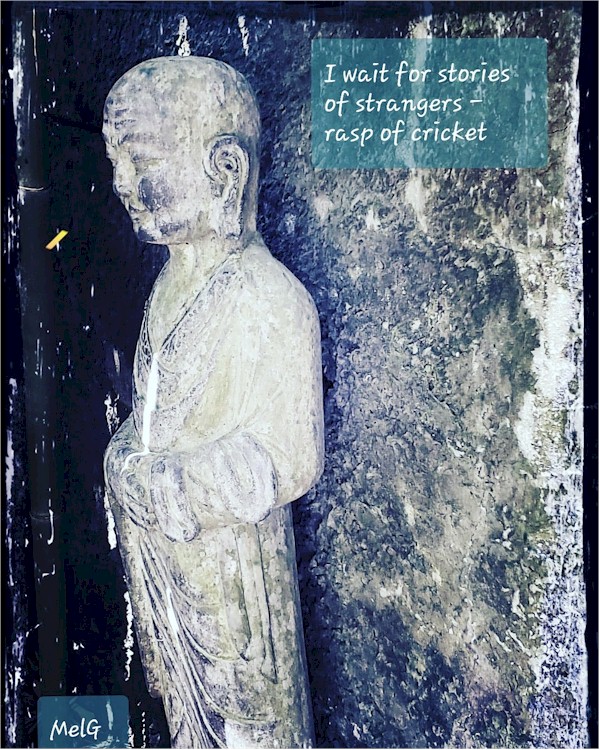
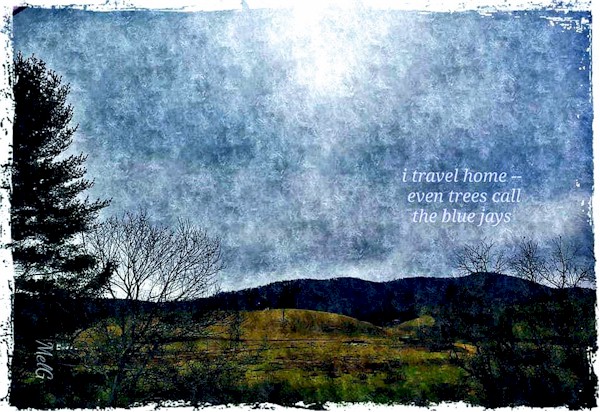
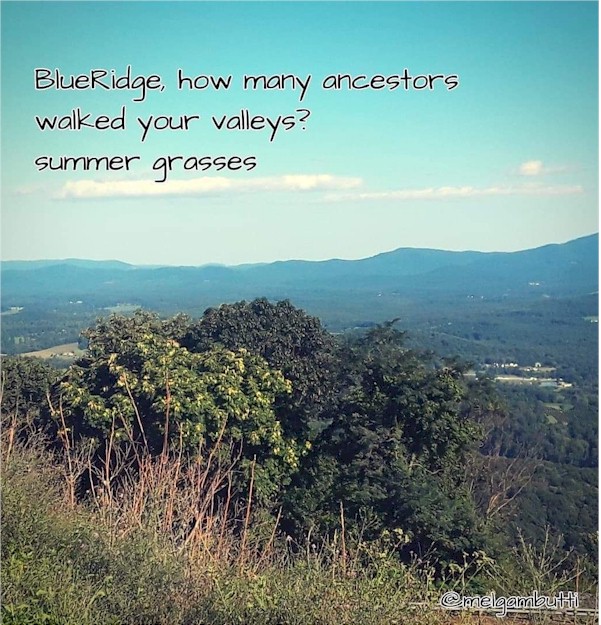
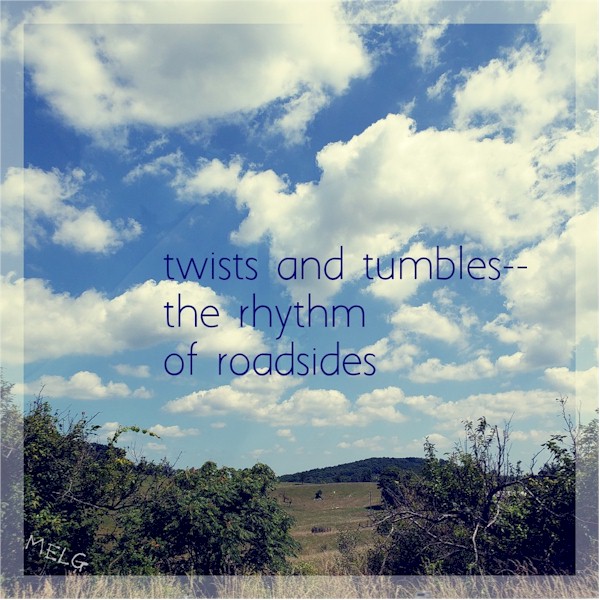
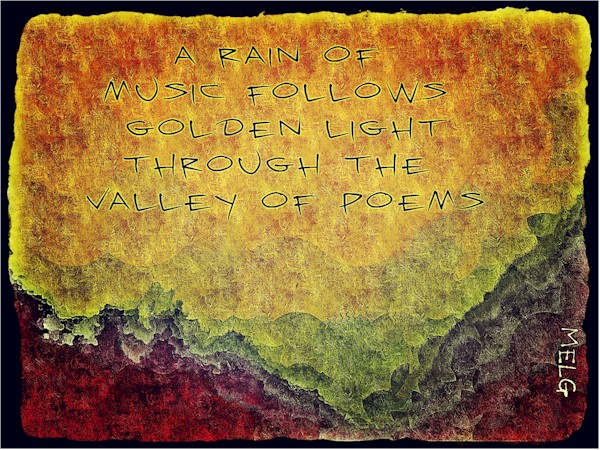
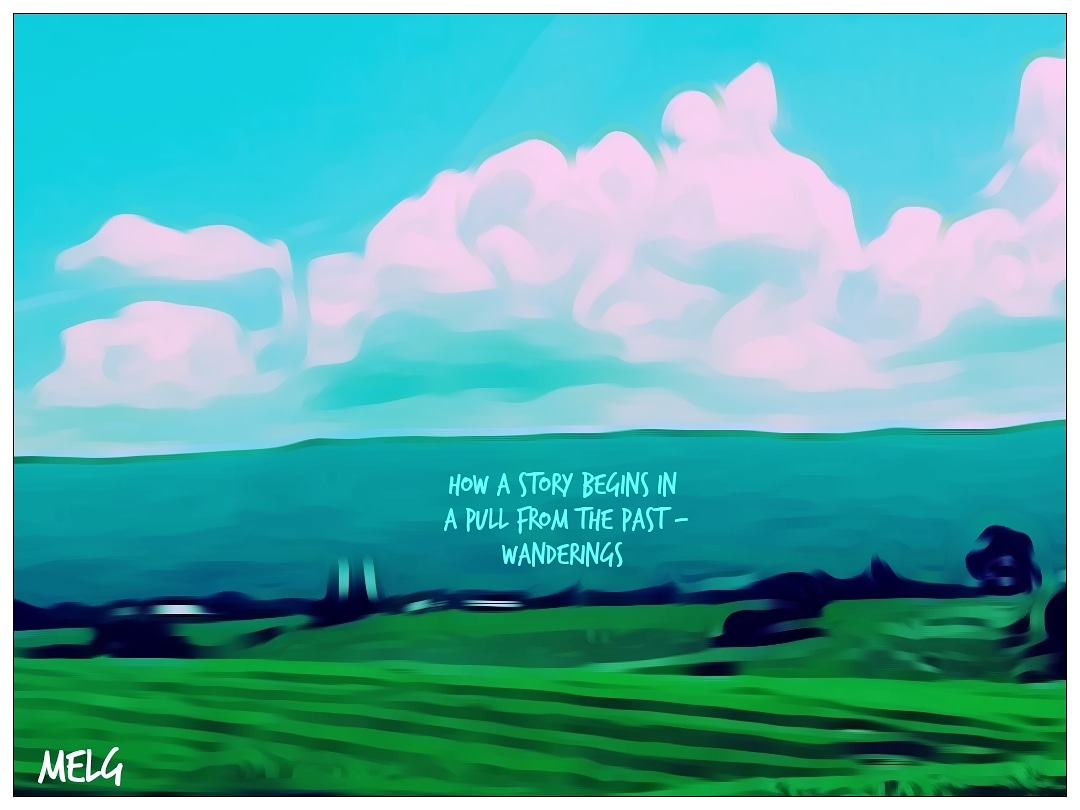






 |
|
|
| Flash Fiction |
Rite of Passage By Maggie Jones He has me in a headlock so tight, I can feel my heartbeat in my head. My body knows what to do. Over the last three and a half years, I have learned these moves. “Muscle memory,” my sensei calls it. I stomp on his foot, hit him in the groin, elbow him in the stomach, and, when he loosens his grip on my neck, I dance his arm behind him for an arm lock. He taps out and calls, “Good job!” Then he grabs me in a bear hug from behind. I’m exhausted, yet adrenaline pumps through me. Remembering what I’ve been taught, I get out of his hold.
I used to get triggered. Sometimes while working alone on a punching bag, other times when I was working with a partner. One night we were supposed to shield ourselves with the blocks we’d learned, using our arms and elbows to protect us from the large pads our partners were wielding. We weren’t supposed to fight back, just defend. Before I knew it, I was back in the basement with Deborah and Angela. One was holding my arms while the other was punching me in the chest. I didn’t protect myself. I didn’t fight back. Before the first punch came, I was made to feel that I deserved it. Otherwise, I would’ve defended myself. Now I’m learning. This test means more to me than a belt—it’s a pledge to myself that I will never allow that to happen again. I look up and smile at my husband who has his camera poised. I give him a thumbs-up as the test proceeds to the timed attacks. Two strong men, both black belts, are attacking me together. They wear Tony Blauer suits, which are head-to-toe suits that law enforcement uses, to help create a more realistic experience. The suit is snug enough to allow the person to move with agility yet protective enough to shield him from hits, kicks, and punches to all parts of the body, including a helmet with a face shield. This way, we can get the feeling of really hitting our attackers. I keep both men in front of me as I hop around the mat, never turning my back on them. The shorter one moves in to grab me, and I knee him in the groin and palm-heel strike him in the face until he backs off. The taller one has a police baton. He comes after me. I move closer to him so he can’t use his stick to hurt me, a move that used to seem counterintuitive. I secure his hand with the stick, kick him in the stomach, and disarm him. By this time, the shorter one has recovered. He gets me on the ground before I know it. His strong body is on top of me. I’m caught between his legs. I quickly trap his arm close to my shoulder and lift my hips, flipping him with the strength of my legs until I’m on top. I palm-heel strike him in the face and stand up as quick as I can. Just then, the taller one grabs me from behind in a bear hug like he’s going to take me somewhere. I grab his pinky finger and bend it backward until he lets go. I hold onto it and twist his arm around until he’s on the ground tapping out. My sensei is on the side of the mat yelling, “Good job! You got this! Only one-minute left!” I smile weakly. My body feels like Jell-O.
I feel like I’m underwater, moving in slow motion. The gray plastic knife comes down at me from a forty-five-degree angle. I block it by crossing my arms above my head. I secure the hand with the weapon and twist his arm behind his back using my body as leverage. I grab his hand with both of mine and press my thumbs into his palm to manipulate it into a ninety-degree angle, and he can’t help but drop the knife. When the gun comes out, my attacker walks slowly towards me, “let’s get out of here.” He touches the orange rubber gun to my chest. “I don’t want any trouble,” I say. Before I know it, I have secured his right hand in my left and moved my body away from the line of fire. At the same time, I side kick him. The thumb is always the weakest link. I roll the gun from his hand toward his thumb and at the same time move his body to the ground. I fake shoot him for effect, then throw the gun away. The room erupts in applause. “Time” is called, and my attackers back off. I breathe a sigh of relief and put my hands on my knees to try and catch my breath.
|
|
|
| Flash Fiction |
Family Resemblance By P.A. O’Neil “They killed the President!” The words were out of your mouth before your mother had closed the front door. “Wh-what?” she asked turning away from your tear-stained face. “The President, they killed him.” “Shush! I don’t want to talk about it. Now, go to your room.” Startled by her lack of sympathy, you take your six-year-old self to your room to cry some more. That was almost sixty years ago. You were a latch-key kid, both parents working fulltime, coming home after school by yourself. The front door key hung on a shoelace worn under your uniform blouse. Each afternoon, you’d walk the mile or so from the edge of the burgeoning town into the neighboring hills to the recently built housing developments. As if waiting for a bus, each morning you would wait for various children to walk past your house, grabbing your lunch and bookbag, leave the comfort of your home to join their procession down the hill. Along the way others, of all ages joined, until it looked like the children of Hamlin Town following an invisible piper. There were many schools along the way, but yours was the farthest and your companions at the finish were the fewest. It was late November, your birthday month, and the weather had not yet turned cold enough for anything other than your uniform sweater. You came home as usual, dropping your bookbag in the living room before you swung back to place your lunch box on the kitchen counter. Would your mother be surprised to find you remembered to rinse the thermos? You were hungry that day, so out came the snack saved in the refrigerator before changing your uniform for home clothes. Placing the little plate on the coffee table, you turned on the television to watch your favorite cartoons on the local affiliate station, but they weren’t on. It was just a lot of men talking. Reluctantly, you changed the television to your second choice, but it was the same. You flipped channels until you saw a picture of the President and the First Lady. You liked them. He was handsome and always smiling, just like your daddy, and she was beautiful to watch, though her voice was a little funny. Their children were the same age as you, and you’d seen so many pictures of their family life, they felt like extended family. You remember thinking this was all a bad show, so you changed channels again until you come to one with someone you recognize speaking. Yes, this was the channel your father watched every night for the news. You could trust what you saw on this channel as your parents did. It was no use though. This man was saying the same thing as the others, earlier that day someone had killed the President, and you began to cry. How long was it before you heard your mother’s key in the lock? Had you been crying all that time? It didn’t matter, like a small chick, all you wanted was the security of being under her wing. In a panic, you ran to the door yelling, “They killed the President!” Her response was not what you anticipated. Didn’t she care? That was one of the many questions you pondered once in your room. Was she angry, because I had forgotten to call her to tell her I was home? That had to be it. It was all a misunderstanding, yet there you remained as you cried yourself to sleep. In the months before she died, as you sat with her one afternoon, you offered that you understood why she acted as she did that day. “Really, I don’t remember how I acted. Tell me about it.” Her breath was labored, but her brow was smooth, making you feel comfortable enough to speak without causing additional pain. “I was thinking about it the other day. You snapped at me when I ran to you for comfort after the President died.” She closed her eyes while you spoke. “You also snapped at me just before your father’s funeral. I think, for you, it was a coping method for holding it all together. I get it now. It’s not that you didn’t care, it’s that you cared too much.” She smiled and held your hand. Today, those memories came rushing back in an instant when a loved one said, “I wish someone would just take him out.” “Don’t say that! Don’t ever say that,” was your reply. “Well, I mean…” “No, I won’t even discuss it. I have to end the conversation.” Your stomach was sick as you hung up the phone. Through a later text, you gave assurance of continued affection, but asked for some time alone. It took sixty years to realize you are more your mother’s daughter than you had ever wanted to admit. |
|
|
| Contemporary Haiku |
Variations on a Theme By Tom Bierovic
white ibis
golden plover
sandhill crane
poised to strike
|
|
|
| Fiction |
The Dragon's Head By Mark Kodama I. She could hear each step creak as he ascended the stairway and then the lithe shuffle of his footfalls on the hardwood floor as he made his way toward her bedroom. It was pitch black, save for the checkerboard square of light that the full moon cast on her carpet and comforter. His hand would soon be on her bedroom doorknob. Yes, there it was: the click. The door opened and then softly closed with another click. His footsteps were light on the floor as he approached her bed. He was like a giant anaconda, slithering across the jungle floor, searching for a rabbit to consume in the night. He lifted her thick cotton comforter and slipped into her bed. Her mattress sagged and creaked. Her back was turned to him. She could feel his breath on her neck. He smelled her hair. He smelled of lavender soap from a fresh shower. He touched her hair and then her face. He kissed the back of her head and then the nape of her alabaster neck. She could feel him pull down her pajama bottom and then her panties. It was like a dragon’s head. He then mounted her. Her bed shook and squeaked in time, first quiet and slow and faster and louder. She lay back. The masks of the actors hung from her bedroom wall. When he was done, he grunted. He gently pushed her hair back and kissed her forehead and then quietly left. The door clicked when he left the room. ▀ ▀ ▀ “Checks,” came a woman’s voice. “Checks.” It was morning; sunlight flooded the room through the barred windows. She could feel the wetness of her panties. She looked at the digital clock on her nightstand. It was already 6:30 a.m. Her late brother Liam dressed in his military fatigues and wearing gold-rimmed aviator sunglasses looked out from the photograph on the nightstand by her bed. The right top corner of the photograph was dog-eared. Liam died in the fighting in Afghanistan. It seemed like long time ago; it seemed like only yesterday. Her father and mother were coming to see her in the afternoon today. The nurse would be soon coming with her medications. The pills always made her feel woozy. But at least she did not have to feel things so strongly. The nurse came in, clipboard and pen in hand. “Good morning babe,” she said. She was a pretty woman about her age 27. She wore a maroon cotton uniform, not a hair out of place. Her makeup was tastefully done. She was half Japanese and half Italian. Her lips were ruby red. They could feel their mutual attraction. “Good morning,” Cassandra said and smiled. “How are you feeling this morning?” the nurse asked. “Great. Just great,” Cassandra replied, covering the rashes and scars on her wrists with the sleeves of her nightshirt. “What book are you reading?” the nurse asked, pointing to the bookcase stocked with the classic works of literature. “Lolita,” Cassandra said. “Wasn’t that an old movie?” the nurse asked. “Yes. I think so,” Cassandra said. “A Stanley Kubrick classic, starred and James Mason and Peter Sellers.” “Well, before my time,” the nurse said. “Before my time too,” Cassandra replied and laughed. “Do you like to read?” “When I have time, babe.” The nurse smiled, her eyes dancing and then involuntarily turned her head away. She touched her hair and then lightly touched her breasts in a sexy subtle way as if adjusting her bra, too small for her large but firm breasts. “Well what drugs did you bring me today,” Cassandra asked. “Go ask Alice,” the nurse said. “Well, one pill makes you larger and one makes you small and ones that mother gives you, don’t do anything at all,” Cassandra said. “Oh, look your carafe is empty,” the nurse said. “I will fill it.” Cassandra looked at the nurse’s swinging curved hips as she left the room. “Am I leering?” she asked herself. “I’m allowed. I am crazy.” ▀ ▀ ▀ The young Amazon warrior stood at the foot of the mountain by a small waterfall, pouring down from on high in the middle of an oak and cedar forest. She was dressed like a young man in a tunic. She was armed with a small bow and carried a small steel knife. She raised her knife to the sky. Her blond hair fell wildly halfway down her back. She prayed to Hera, queen of the gods and goddesses, for the strength to slay the dragon.
Hermes appeared as Liam in his olive army fatigues and black beret, his rifle slung on his shoulders. “Greetings. I am Hermes, messenger of the gods” he said in her brother’s voice. “I was sent to you by Hera, queen of the gods and goddesses on Olympus.” “I am sorry,” she said. “But I do not know who I am. But I am on some kind of mission.” “You are to kill the dragon, cut off its head and bring it back to King Arcaeus.” “Yes, that’s right.” “I have brought you armor, and a sword forged by Hephaestus himself that will protect you from harm.” A bronze and leather cuirass, a bronze Corinthian helmet, a metal shield and a pair of bronze greaves lay by the fire inlaid with silver and gold, along with a two-handed Damascus steel sword in a scabbard with a silver and leather handled pommel. The God Helios drove his chariot upward into the blue cloudless sky toward its zenith. Helios wore a black beret and an M-16 was slung on his back. A hot breeze blew her long dirty blond hair across her helmeted face. “Victory or death,” she could hear the god say to her as he looked down from his chariot pulled by giant winged steeds in the sky. She turned her head. Hermes was gone. II. Cassandra met her father and mother in the lobby through the double locked doors that visitors had to pass through to enter the ward. They seemed much older. Both had a shock of white hair. His perfectly cut hair was short and neat, not a hair out of place. He dressed in a gray suit with a tasteful blue silk tie. He always wore colored suspenders. His expensive new shoes were perfectly shined. His gold watch was tasteful but not ostentatious. He was still handsome and quick. He played tennis every weekend at the club. Her father kissed Cassandra on the cheek, followed by her mother. “How are you Sweetheart,” father said. “Yes, how are you Cassandra,” her mother smiled. “I feel great,” Cassandra said. Her mother took Cassandra’s hands in her hands. She subtly pushed Cassandra’s long sleeves partly back so she could see the fresh scars on her wrist. “You look great,” father said. He was carrying a bag of books. He smiled warmly but his eyes were sad. He smelled like lavender soap. “Oh, I bought you these,” he said. “Oh, my books,” Cassandra said and smiled. She handed him a half dozen books. Here are the ones I finished. I loved Crime and Punishment. In Cold Blood was great too. Ulysses was a little slow. “Yes,” father said. “And some new ones too. There is a new translation of the Iliad and I brought your Loeb classic in the ancient Greek. I just finished Prescott’s History of the Conquest of Mexico. I thought you would enjoy it.” “What are you reading now, Dad?” “Well, now that I am retired from the bench, I thought I would read Kant’s Critique of Pure Reason.” “Punishing!” Miriam said. They both laughed and then realized at the same time mother was standing there. There was an awkward silence. “Well, I was reading all about President Trump in People Magazine,” mother said. “Oh yes,” father said. “What did the article say?” “I don’t quite remember,” mother said. “Now that I think about it, I think the article was about Ivanka Trump.” “Oh,” Cassandra said. “Are they feeding you well?” father said. “Well, they should,” mother said. “Our insurance only covers 80 percent of the costs here. You have been here for almost three months. After that we must pay for it ourselves.” “You must eat well, honey,” father said. He hugged her close and kissed her forehead, tenderly pushing her hair back. “Take your time. Take all the time you need to get better. You look much better.” Her mother was silent, a little angry. “Get better,” he said, his voice cracking, his eyes red with tears. He brushed her hair back from her face with both hands. “I love you.” She bent her head down. Tears flowed from her eyes. “Come home soon,” he said softly. ▀ ▀ ▀ The north wind chilled to the bone and the air became thin, making it hard to breathe. Her armor, sword and shield weighed heavy on her body. Her legs ached. She stopped to rest. She was halfway up the mountain. Suddenly, Helios called to her. “Cassandra, why so tired? You have tasks to complete and prophecies to fulfill. Get up.” Cassandra immediately stood up. With renewed energy, she continued up the mountain.
III. When they brought her dinner in on a white tray, it was beef stew, with a salad, roll and apple juice. It was not the beef Bourguignon that she and her dad made but it would more than do. Cassandra did not realize how hungry she was. It tasted like the cafeteria food at the university which she liked. After dinner she settled down by reading Narbokov. Lolita. She could hear the music in her mind from the movie. After she was done with the book, she could scratch it off her reading list. ▀ ▀ ▀ “So tell me about that,” the therapist said to Cassandra. He rocked back in his cherry red leather swivel chair, putting his thick stubby fingers together in a pyramid. Stephen was nice enough, about 35 years old. He had a black mustache and receding hairline and black beady eyes that stared through his thick cloudy glasses. The problem with psychiatrists and therapists is that many seemed more screwed up than their patients. You wonder if they go into psychiatry as a way to better understand their own problems. How can you be honest with someone like that? You sometimes wonder whether you could just switch places with them. “Tell me about what?” Cassandra asked. “What you just said.” “What did I say?” “About your dream.” “Oh, yes. You mean about Mount Olympus?” “Yes.” “It is just dream.” “Well, it may be important.” “It was just a dream.” “I think it is saying something.” “In the dream, I am a warrior on a quest.” “Yes.” “I am climbing a mountain . . . To slay a dragon.” “It is just a silly dream.” “I’m trying to help you. You have to be honest with me for me to help you.” “I’m trying to be honest with you,” Cassandra said, disingenuously. How can she be honest when she cannot tell what is true? Isn’t that why she is there? she thought. What if she were honest? Then they might really think she is crazy. Or worse yet, believe her. “There are gods and goddesses. My dead brother appears to me in the form of Hermes.” “Yes.” “And he urges to me to climb the mountain to kill the dragon.” “Do you kill the dragon?” “I don’t know. I haven’t gotten to that part yet.” “Okay,” Stephen said. “I think that’s enough for today.” “When are they going to let me out of here?” “When you are ready.” “I’m ready now.” “You are not ready yet,” he said. “There is much you have not told me.” “I am trying.” “I know you are.” ▀ ▀ ▀ The cave was at the bottom of a shear rock face, surrounded by a jumble of gray Cyclopean rocks. A small pine tree resembling a bonsai plant marked its entrance. Her heart raced but she felt no fear. “Thank you, Hera, queen mother, for your trust in me,” Cassandra said, raising her sword to the sky, the curved patterns of the blade flashing in the sunlight. “Queen goddess. I am here. I shall to conquer or die.” She could hear the deep voice of the goddess. “Courage, my darling. Courage.” Cassandra lit a torch and she charged into the mouth of the cave carrying her drawn sword in both hands and her shield strapped to her back. She ran down the long snake-like entrance, deeper and deeper into the cave until the cave opened into a large vault. Water dripped from the giant jagged stalactites resembling phalanx of spears that hung down from the ceiling into a large steaming underground pond Suddenly, from the still waters of the pond, a large green dragon emerged. Its face was like a crocodile with razor sharp curved with teeth. The dragon knocked the sword from Cassandra’s hands and ripped her silver and bronze cuirass from body, exposing her naked breasts. Cassandra tried to grab her sword which was just out of her reach. The dragon grabbed her right ankle with his slimy mouth and began to drag Cassandra helplessly towards him. The dragon was too strong and began to pull the naked Cassandra toward the steaming pond. As he pulled her toward the pond, she smelled lavender soap. She began repeatedly hitting the dragon on his head with her shield, every time striking him harder. Finally, she could hear his skull crack. The dragon loosened his grip on her ankle and finally his jaw turned slack. He began breathing heavily. His eyes were glassy. Cassandra ran and grabbed her Damascus steel sword with both hands. Blood gushed from her calves. With a mighty swing, she cut off his head. Blood spurted from his decapitated body. Cassandra held his head up in triumph. ▀ ▀ ▀ Cassandra and her father talked about Homer and the heroes of Greece while her mother read her People Magazine.
|
|
|
| Flash Fiction |
Rules in Heaven By Thomas Elson
|
|
|
| Flash Fiction |
On Her Third Step By Thomas Elson
The street was both lush and bleak, scattered with vehicles without bumpers, fenders, doors, radio antennas, wheels, or hubcaps. Vehicles in streets, front yards, elevated or embedded a few absent tires, others absent axles. Vehicles once for use now for cannibalization or neglect. ▀ ▀ ▀ That night was terminal. He didn’t know it yet; but more likely than not, she had an inclination. He would see her only one more time. He didn’t know that either. On the third step of a shared porch they had rested on, stood against, and lingered near for years - her widowed mother’s half a house. The kind of slap-dash housing folks lived in back then. Housing where wind could be heard through the windows. The wind a low whine, sometimes mellow, more often shrill and mean, but always demanding. Winds that delivered consecutive blows with such force that memories long tucked away were shaken loose. Houses modeled, remodeled over generations until they stood as they were in the beginning with pitted white siding, unpainted porches, two halves with two doors and two windows facing the street. A visitor could be shot gunned through the door, into the living room, kitchen, past bathroom, then into bedroom and out the back door without being invited inside. Their lives charted by a single path dictated by the times – the early sixties which means the fifties, but learned from the forties, and dictated during the thirties. Her grandmother’s life sewn into her seams. His grandfathers’ life a trumpet that would lead him his entire life. Both carried expectations as blinders. The only issues were the peripheral vision allowed with those blinders, and how long until they were yanked off. Her world remained as small as her house – one classroom in one city with one spouse and one set of friends. From house to high school to college to classroom – a life within eight city blocks. His world had multiple roads – graveled, paved. Rutted. Smooth. Mapped. Unknown - until, years later, after paneled offices near the Potomac, the Mississippi, and San Francisco Bay, he was on the same street in the same town where he had begun. He, in his bespoke suit, had seen a current picture of her – a weighty, dyed or maybe wigged blond of a color not found in nature, her posture boisterous, ankles and wrists thick wearing a checkboard of orange and white that emphasized everything wrong. He preferred the black and white version when she was erect with dark hair framing an eager face, eyes focused on the world in front of her. ▀ ▀ ▀ That night on the left side of the third step of the duplex was their last time whose first time began with adjoining lockers and the door she opened that struck his head as he turned to look at her. No words, just mutterings. No actual plan, they just were drawn together, just yes and yes, then yes. There were no smiles on that terminal night only attempts to recapture better times. Times of firsts, of anticipations, feelings, touches. One year, two years, three years. The school years, Christmas vacations, summer jobs, the nights, dates, parties, movies, games, arguments, parking – airport, drive-ins – parents’ cars, permissions, acceptance, then graduation. Then, their final night as a couple. Three years. In all that time he was never invited inside. For years he carried her in that empty spot. They were broken by something forgotten, never understood, mendable had they a few more years of maturity and experience. On that night, when futility hit, he rose from the step, kissed her, held her, kissed both cheeks, kissed her again, took her hand, and did not let go until distance and time released her for him. |
|
|
| Prose Poem |
Slice of Life: For the First Time By Prisoner #53.3.8.5.7 Today I sit for the first time The first time I breath Today the bars It was strange and Today I acknowledge
|
|
|
| From the Editor's Desk |
Spotlight On: Our Racist Land of Liberty By Basha Krasnoff In 2017 when NFL player Colin Kaepernick began to “take a knee” during the playing of the National Anthem, the President of the California Chapter of the NAACP, supported this action stating, “’The Star-Spangled Banner’ is racist; it doesn’t represent our community, and it’s anti-Black.” Alice A. Huffman further argued that the lyrics celebrated the deaths of Black slaves in their fight for freedom in the War of 1812. Historians have argued for years about the meaning of one particular couplet in the third stanza, with some suggesting that the line refers to its author, Francis Scott Key, rejoicing in the massacre of former slaves who took the side of the British. The couplet in question is highlighted in bold type: “And where is that band who so vauntingly swore, Beatrice Dupuy further pointed out that Francis Scott Key opposed abolition, owned slaves and once remarked that Blacks were “a distinct and inferior race of people, which all experience proves to be the greatest evil that afflicts a community.” How can we possibly accept these lyrics to represent us all? The Movement from Racist to Nonracist to Antiracist
During the Civil Rights Movement of the 1960s, students in Northern universities expressed sympathy with the plight of Black Southerners, yet they remained passive. To overcome their inertia, the Student Nonviolent Coordinating Committee (SNCC) organized “Feedom Buses” to bring them down to the South to act as observers. Witnessing Whites lynching Black citizens, attack dogs mauling protesters, fire hoses dislocating bones – transformed them into active anti-racists. Enraged, these students informed their parents of what they witnessed – and these often-passive opponents of the “riotous” civil rights protesters, upon hearing firsthand accounts of the injustices, aligned with the cause. The realignment of these thousands of parents in the North shifted the entire political climate in relation to the demands of the Southern Freedom movements. It is only through direct and active participation in the movement and reckoning with the fact that racism is systemic that a nonracist person transforms into an antiracist person. The death of George Floyd, the most recent unarmed Black citizen murdered by police, has evoked statements of solidarity from politicians, corporations and even police departments around the country. But Angela Davis tells us that “there is an unbroken line of police violence against Black citizens in the U.S. going all the way back to the days of slavery.” Naomi Klein tells us that the construct “Race” is a trace of history that can be followed back through many hundreds of years and was invented to facilitate colonial conquests, enslavement and exploitative labor regimes – all engines of capitalism. Today, the political-economic structure of the global economy rests on the availability of a cheap, informal labor force, imperialist warfare, “extractivism,” the mass incarceration of racialized people and massive inequalities in educational attainment, wages, housing and healthcare. Ending racism would require transforming the global political-economic structure. It would mean paying workers fair wages across supply chains and ending the ethnicity pay gap – all of which fly in the face of the primary corporate objective of profit. So how can we move from a passive non-racism to an active anti-racism society? It requires mass-participation in the workplace, the street, and the community. Beyond protests, donations, social media posts, and difficult conversations, it requires that the many day-to-day issues underscored by racism be addressed and tackled head on. To create substantive change, we must transform what has become a huge political moment into a huge political movement. Working together we must all – Black, Brown, White - become anti-racist activists outside of state agencies (which are some of the principal purveyors of systemic racism) to meet the needs of Black and Brown communities. It means fighting for improved healthcare provisions and protective work equipment for the marginalized members of our workforce and fighting against the sweeping range of new policing powers being disproportionately yielded against working-class racialized communities. And, we must give voice to the grief and anger that generations of Black Americans have suffered at the hands of the criminal justice system. Unconscionable examples of racism over the last weeks and months have come at the same time that America's Communities of Color have been hit hardest by the coronavirus and catastrophic job losses. There is a perfect storm devastating Black Americans. Young and old, Black and White, families and friends must continue to join together in small towns and big cities across the country to demand change. “Whose Country Tis of Thee?” When we stand to sing “America,” we must openly acknowledge how clearly at odds the idealism of the lyrics has been with the reality of being Black in America. But, if we follow the lyrics through to the third verse, we can’t help but posit that those lyrics might be poignantly foreshadowing today’s articulate and insistent nonviolent movement toward liberty and justice for all. “…Let music swell the breeze, A worldwide movement for dramatic social, economic and political change is underway. Let freedom ring! |
|
|
| Point of View |
Ironies in the Aftermath By Toni Merflag
Some were shouting and crying; many were intent on demonstrating that they are not subjects and slaves; they are regular normal people worthy of the respect and equality that the Constitution promises to all citizens regardless of station or skin color. In the depth and grip of their emotions, they were looting, damaging and destroying property and businesses. I was watching all this and feeling angry and sad and helpless to do anything, not ABOUT them, but FOR them. It was a punch in the gut, because I was feeling such sympathy and frustration. And then the screen showed a bunch of young men, some of them teens, maybe a dozen altogether, angry as hell and determined not to walk away passively from their anger and frustration. They were destroying a police cruiser, breaking the windows, denting every bit of metal they could reach, slashing the tires. And I started laughing, because every single one of them was wearing a coronavirus face mask. A criminal act for sure, but I could not blame them. No sane person who understands the history and treatment borne by black people in the United States during the past 400 years could. Obviously, it was smarter to attack that car, then drift away to some other neighborhood, than to attack the real source of their anger, police officers in general and more specifically, just four Minneapolis officers. I felt guilty for laughing in the face of all that grief, anger, and pent up frustration, but I could not stop laughing even with the sad tears running down my cheeks.
|
|
|
| CONTRIBUTORS |
| Summer 2020 |
|
Alfredo Salvatore Arcilesi Gary Beck Tom Bierovic Charles Braddy Wesley Ann Cook Thomas Elson Mary Ellen Gambutti F.I. Goldhaber Mark Kodama Basha Krasnoff Toni Merflag P.A. O’Neil Prisoner # 53.3.8.5.7
|
|
|
| SUBMISSIONS |
| Summer 2020 |
Buoyed by the thriving literary community of Portland, Oregon, we reach out to the global community to inspire, encourage and broadcast creative expression. Wherever you are on planet Earth, we welcome you to share your vision, your voice, and your point of view! The Portland Metrozine is published quarterly (Spring, Summer, Fall, and Winter), but submissions are accepted at any time. We accept simultaneous submissions but please let us know if your work is accepted elsewhere. We will consider previously published work with a citation for the original publisher and date. You can learn more about our community via Facebook and Duotrope. Submission GuidelinesSend an email message to the Editor at: 1. In the body of your email, please include: ■ Title of your submission 2. For document files, use MS Word (.doc, or .docx), or ASCII text (.txt). Attach your document and/or image file(s) according to these guidelines:
Creative Non-fiction: 1 essay per submission (max: 4K words) ■ double-spaced manuscript ■ one-inch margins ■ paginated
|
|
|
| KUDOS Gallery |
| Summer 2020 |

